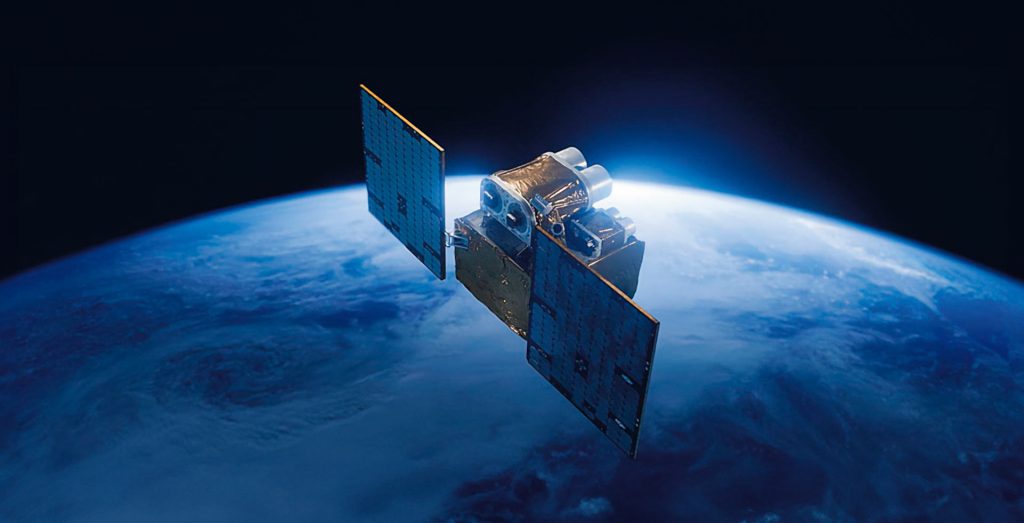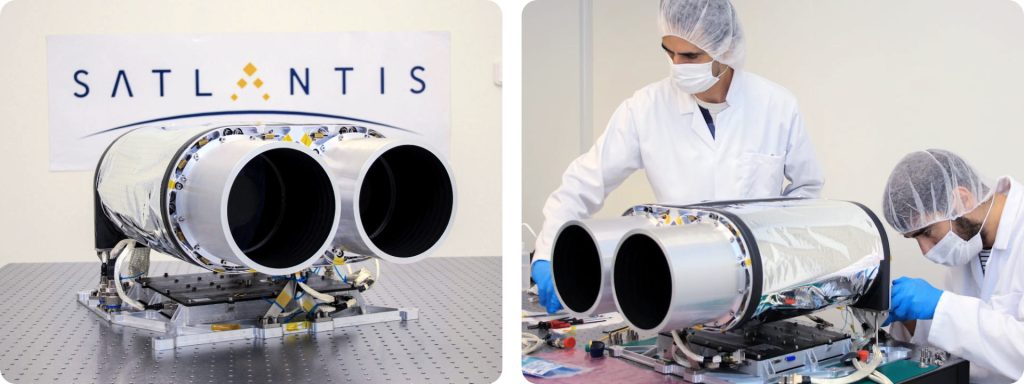Satlantis and the ARRAKIHS Mission: A Giant Step for Spain in the Exploration of Dark Matter in the Universe.

This year, Spain not only shines in football but also at the forefront of space science. The Spanish company Satlantis, in which Enagás holds a stake, has taken a leadership role in the ARRAKIHS mission of the European Space Agency (ESA). This project, whose name is a nod to the famous Dune novel series, seeks to unravel one of the greatest mysteries of the universe: dark matter.
ARRAKIHS (Analysis of Resolved Remnants of Accreted galaxies as a Key Instrument for Halo Surveys) is the first ESA scientific mission coordinated and led by Spain. Its goal is to observe stellar streams in galaxies to study the distribution of dark matter, a form of matter that, although invisible, is known to exist due to its gravitational influence on visible matter.
To achieve this, Satlantis has developed four high-precision devices, including two cameras that capture infrared light. These devices will be sent into space aboard a 300-kilogram satellite, which will orbit 800 kilometers above Earth, far enough to avoid light interference and focus on galaxies located between 82 and 130 million light-years away.
The mission is a milestone not only for its technical complexity but also for the collaborative approach adopted from the outset. Satlantis has worked hand in hand with ESA, a notable difference from previous missions where the industry usually intervened only after scientists defined the challenges. “We have been working together from the beginning,” explains Juan Tomás Hernani, founder and CEO of Satlantis.

The ARRAKIHS mission is part of ESA’s Fast-class mission program, characterized by having a relatively low budget and a rapid development period of less than 10 years. ESA’s budget for this mission is 200 million euros, although the final figure could be higher due to additional contributions from Spain and other countries.
The satellite, once launched in 2030, is expected to accumulate 150 hours of observation in at least 75 nearby galaxies. These observations will help scientists study the structures in galactic halos, low-luminosity areas where dark matter is believed to have a significant presence. Satlantis’ cameras are so precise that if used to observe Earth from 500 kilometers above, they could distinguish objects as small as a car or a fruit tree.
Satlantis’ contribution to this project is not only limited to technological innovation but also reinforces the company’s commitment to scientific advancement and technological development in Spain. Enagás’ participation in Satlantis demonstrates its commitment to diversification and future vision, significantly contributing to a project that will position Spain at the forefront of space exploration, once again proving its ability to meet great scientific and technological challenges.
The team behind ARRAKIHS, composed of 120 professionals from five countries, is working tirelessly to uncover the secrets of dark matter, a task that, while full of uncertainties, promises to expand our understanding of the universe in unprecedented ways.
Mark your calendars for 2031! The ARRAKIHS mission not only represents a significant advance in space exploration but also a source of pride for Spanish science and technology.
For more information about Satlantis and its projects, visit their website.






